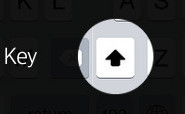If you have an Android gadget, there is a good probability it spends lots of its time browsing the web.
Android’s extensive ecosystem of third party developers is strength; however, it can as well bring about confusion: with so many different browsers accessible, which one is the greatest? Do you actually need to change away from the default browser in any way?
This article aims to answer that question definitively. To accomplish this we have taken the most accepted Android web browsers – Chrome, Firefox, and Opera Mobile pitted them head-to-head to see which you ought to be making use of to get the most out of your tablet or Smartphone.
CHROME
It might seem odd for Google to offer two separate browsers for Android; however Chrome is a different being to the stock Android browser. Founded on the same open-source Chromium engine like the desktop version, Chrome for Android offers a common environment for anybody accustomed to the software on other gadgets. Better still, it synchronizes with Chrome on laptops and desktops, offering access to saved tabs, browsing history and passwords.
The early releases of Chrome for Android were clunky; however, Google has done well to get the software up to the mark. A few compatibility problems still exist, nevertheless, and you will require a gadget running Android 4.0 ‘Ice Cream Sandwich’ or newer to set up Chrome.
FIREFOX
Developed by the Mozilla Foundation, the open-source Firefox for Android was formerly recognized under its name of Fennec – and it is come far off since the early days. Intended to present a household interface to those who make use of Firefox on the PC, it is a great – however memory-hungry – browser experiencing a swift development series.
For those who make use of Firefox by now, installing Firefox on an Android gadget unlocks a few handy extra features counting support for the same add-on tools and access to a synchronization system which permits you to access bookmarks and even open tabs from your desktop Firefox installed on your cell phone. With Chrome the single other browser to present such remarkable cross-platform functionality, Firefox is proving more and more popular amongst those with gadgets able to meet its requirements for power and memory.
OPERA MOBILE
Opera was initially a paid-for browser, with a free marketing-supported version. The company made the choice to go totally free some time ago, in spite of plummeting market share alongside the likes of Chrome and Firefox. Its mobile alternatives have long been accepted alternatives for Smartphone’s and feature handsets, nevertheless, and continue to do well on Android.
Opera delights itself on compatibility, sticking as near to the HTML5 requirement as possible. That is not to say that the group does not innovate, nevertheless: Opera Mobile comprises intelligent compression technology intended to cut mobile data charges by routing data through Opera’s individual servers, though this can be turned off if preferred.
Verdict
It is recommendable sticking with the Chrome browser if your gadget supports it, since this is the greatest all-rounder. Opera is as well an excellent pick for users who boast a diminutive data allowance since it consumes less data than rivals because of compression technology. Firefox is surprisingly slow and is recommendable only if you boast a high-end Smartphone.









Best browser on Android – Google Chrome, Mozilla Firefox or Opera